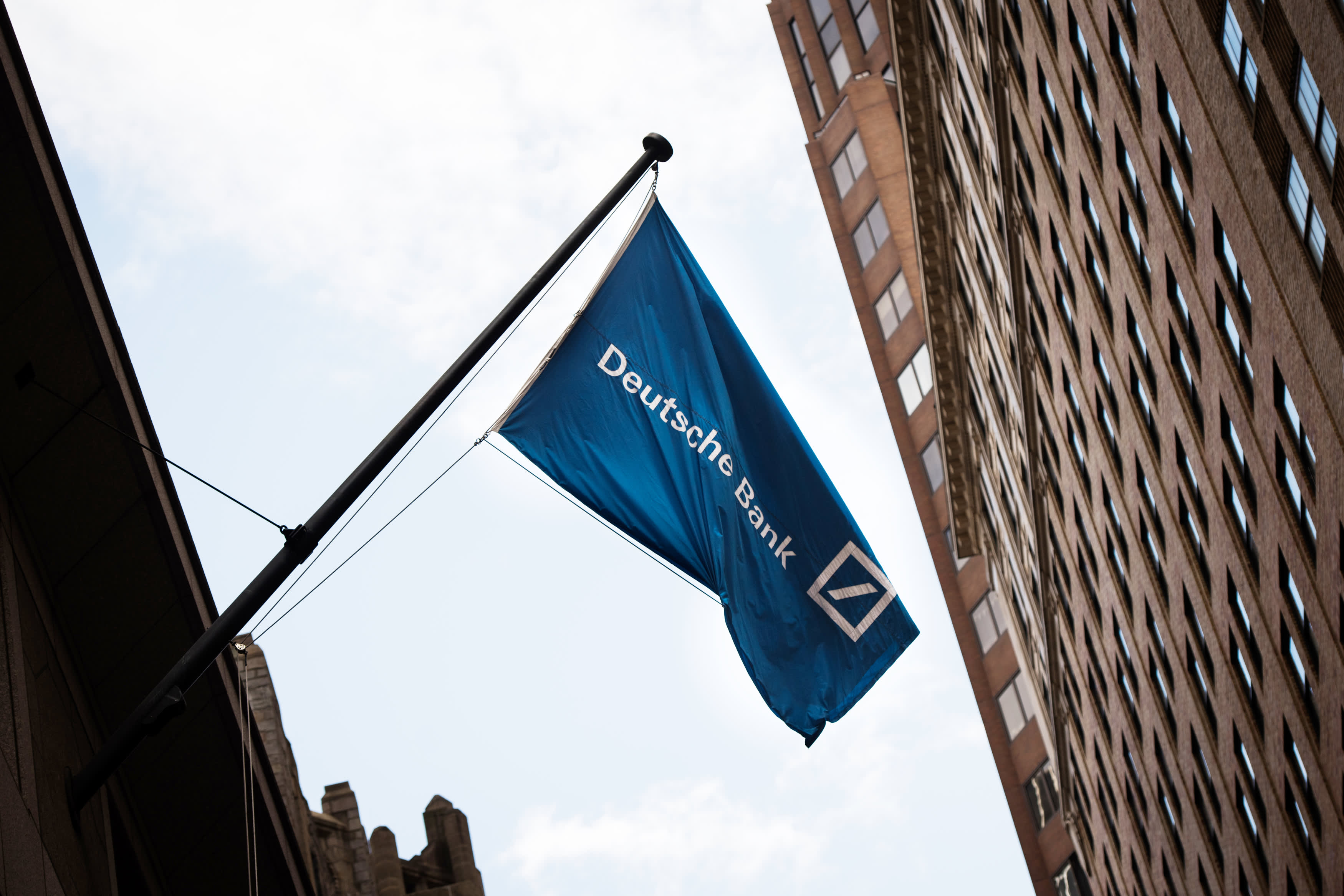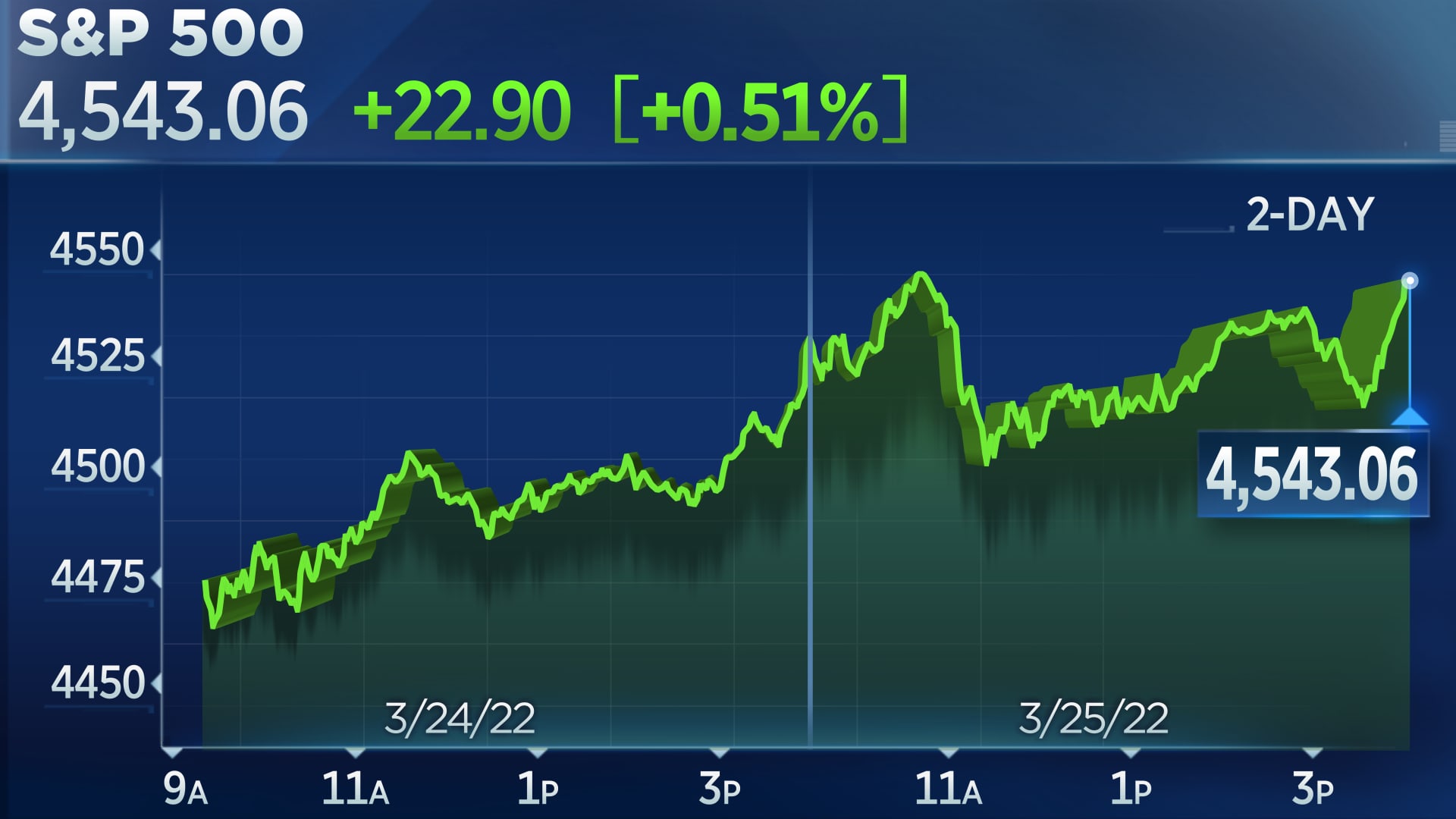China stocks jump amid hopes of policy support ahead; Singapore, South Korea tighten monetary policy
Mainland Chinese stocks were among the biggest gainers regionally in Thursday trade amid hopes of policy support from authorities.

SINGAPORE — Shares in Asia-Pacific were mixed on Thursday, with mainland Chinese stocks among the biggest gainers regionally amid hopes of policy support from authorities. Singapore and South Korea also announced monetary policy tightening.
By Thursday's market close in mainland China, the Shanghai composite was up 1.22% to 3,225.64 while the Shenzhen component climbed 1.266% to around 11,714.62.
China's government announced Wednesday that reserve requirement ratio cuts will be used "at an appropriate time to raise the credit input capacity of banks," citing details from a State Council executive meeting chaired by Premier Li Keqiang.
That development comes as China has in recent weeks been battling its most severe Covid outbreak on the mainland since the initial phase of the pandemic in early 2020.
"Whether it's looking at big data blips of the number of ships waiting offshore in Shanghai or simply speaking to my colleagues in Shanghai, there is going to be significant disruptions to the Chinese economy from the current lockdowns that we're seeing from Covid," David Wong, senior investment strategist for equities at AllianceBernstein, told CNBC's "Street Signs Asia" on Thursday.
Even though the inflation issue is not as severe as it is in many parts of the developed world, it is understandable that both central banks [of South Korea and Singapore] are trying to make sure they act pre-emptively.
Clara Cheong
Global market strategist, JPMorgan Asset Management
"I think what we're seeing now in terms of policy easing may partially offset but may not completely offset some of those negative fundamental impacts," Wong said.
In Hong Kong, the Hang Seng index also gained 0.67% on the day to 21,518.08. Shares of CNOOC listed in the city rose 0.87%. Reuters reported Wednesday the Chinese oil firm is preparing to exit operations in multiple Western nations due to fears of sanctions.
In other markets, the Nikkei 225 in Japan climbed 1.22% to close at 27,172 while the Topix index advanced 0.95% to 1,908.05.
In Australia, the S&P/ASX 200 rose 0.59% to end the trading day at 7,523.40. Australia's unemployment rate remained at 4% in March, according to official data released Thursday. That was slightly worse than expectations in a Reuters poll for a 3.9% unemployment rate.
MSCI's broadest index of Asia-Pacific shares outside Japan gained 0.38%. Markets in India were closed on Thursday for a holiday.
Monetary policy tightening in Singapore, S. Korea
Elsewhere, shares in South Korea and Singapore struggled for gains after the central bank in both countries on Thursday announced monetary policy tightening.
South Korea's Kospi closed little changed at 2,716.71. The Straits Times index in Singapore sat fractionally lower, as of 4:11 p.m. local time.
The Bank of Korea announced Thursday a 25 basis points hike in its base rate to 1.5%, a decision predicted by less than half of the economists in a Reuters poll.
Stock picks and investing trends from CNBC Pro:
Following the decision, the Korean won traded at 1,226.28 per dollar, still stronger than levels above 1,232 seen against the greenback earlier this week.
In Southeast Asia, the Monetary Authority of Singapore on Thursday also announced a tightening of monetary policy, its third in the last six months.
The Singapore central bank said it will re-center the mid-point of the exchange rate policy band, referred to as the Singapore dollar nominal effective exchange rate, at its prevailing level. The rate of appreciation of the policy band will also "increase slightly."
The width of the policy band was left unchanged. The MAS manages monetary policy through setting the exchange rate rather than interest rates.
The Singapore dollar strengthened to 1.3541 per dollar following the MAS announcement, as compared with levels above 1.364 seen earlier in the week against the greenback.
JPMorgan Asset Management said in a note that Singapore and South Korea, as net energy importers, "are not spared" from the effects of higher commodity price that were worsened by the Russia-Ukraine conflict.
"Even though the inflation issue is not as severe as it is in many parts of the developed world, it is understandable that both central banks are trying to make sure they act pre-emptively," said Clara Cheong, global market strategist at JPMorgan Asset Management.
"From the rates space, the MAS is probably a tad more hawkish than expected, with the market now looking for another potential move in October," added Eugene Leow, senior rates strategist at DBS Bank.
Currencies and oil
The U.S. dollar index, which tracks the greenback against a basket of its peers, was at 99.677 after a recent decline from above 100.4.
The Japanese yen traded at 125.35 per dollar, stronger than levels above 125.6 seen against the greenback yesterday. The Australian dollar was at $0.7442 following a recent bounce from levels below $0.744.
Oil prices were lower in the afternoon of Asia trading hours, with international benchmark Brent crude futures down 1.12% to $107.56 per barrel. U.S. crude futures declined 1.32% to $102.87 per barrel.
— Correction: This article was updated to reflect that Clara Cheong is from JPMorgan Asset Management. An earlier version misstated her title and organization in one instance.

 MikeTyes
MikeTyes 































